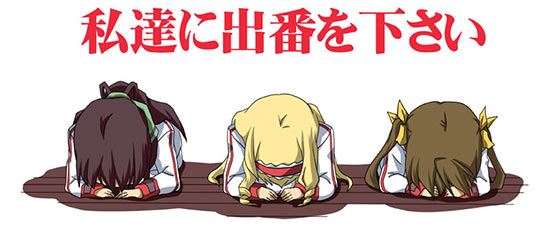Bowing is an important form of social communication in Japan. Whether it’s a short sumimasen accompanied by a brief lowering of the head at someone for bringing you a cup of coffee (which essentially means “sorry for inconveniencing you”), or a gomen nasai said with a deeper bow for communicating a more serious apology, Japan’s culture of bowing is interesting to observe. Japanese people bow to each other while talking on the phone or to thank other drivers for letting them go ahead of them in traffic, and naturally foreigners pick up on this, too, though it can be embarrassing. The ultimate form of a bowing is dogeza, known in English as kowtow or in Internet visual parlance, orz, which is when a person places their body on the lowest level possible, literally touching their head to the ground. This is done to ask for forgiveness for a serious breach or to make a very important request of someone. When my Japanese wife’s mother met my mother for the first time, she did this, prostrating herself on the floor in a gesture that meant, “I humbly ask you to look after our daughter from now on,” which freaked my mother out more than a little. Today we have some interesting Japanese plush toys featuring Japanese salrymen making this deeply Japanese gesture.

An example of dogeza (“Please, give us a role in the series, too!”)














